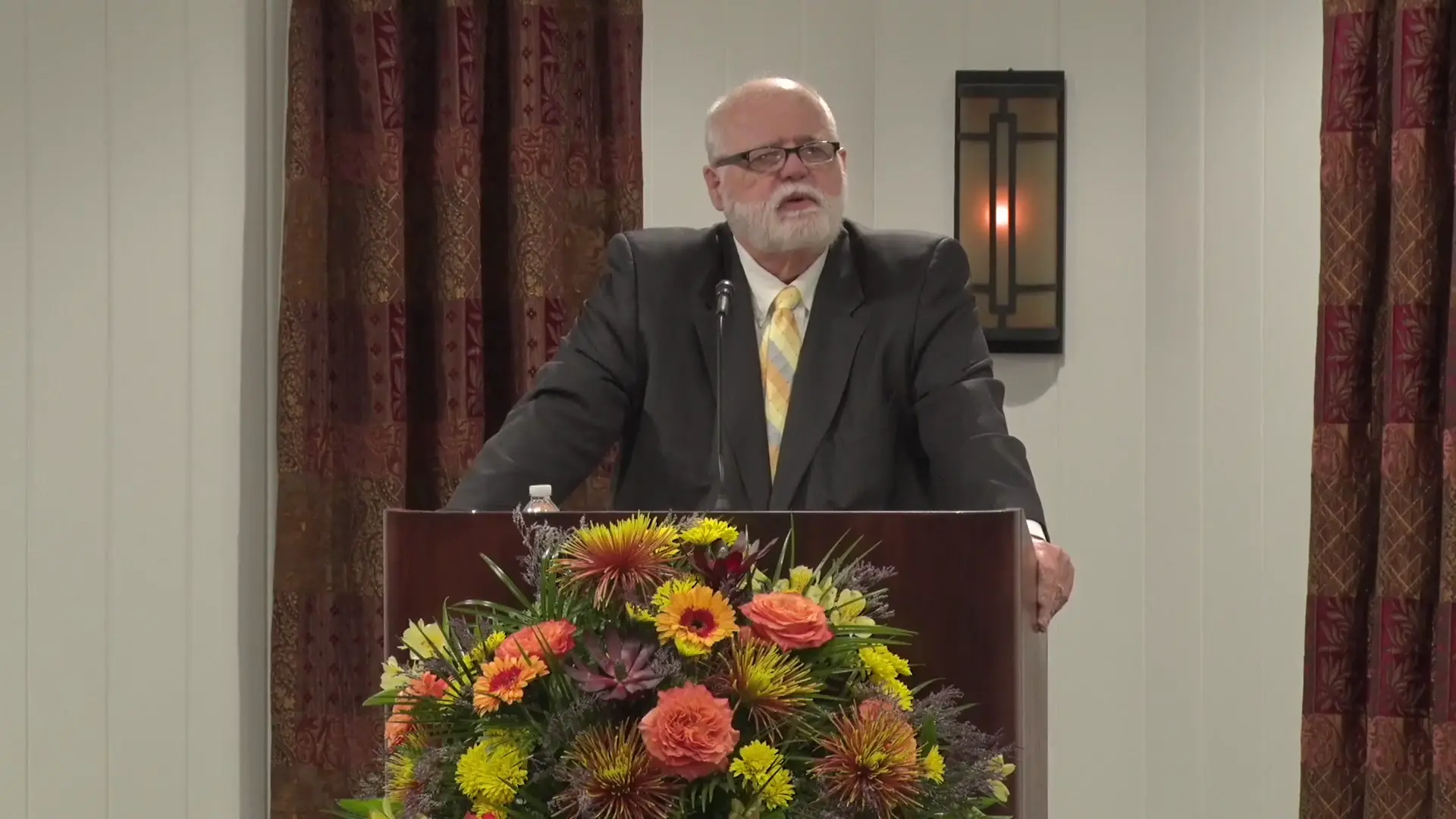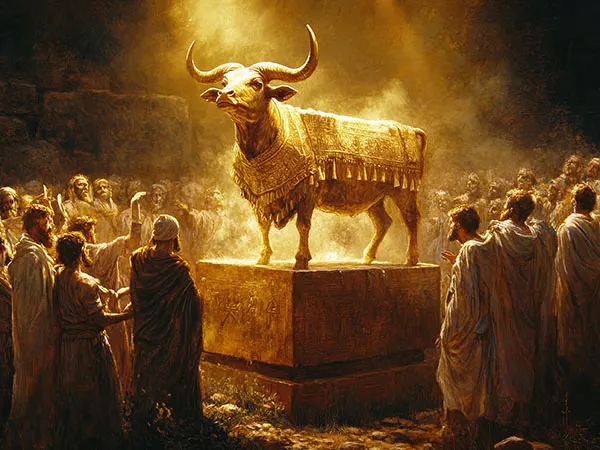Filter by Categories

Be Holy, as I am Holy
Sermon by Ted E. BowlingHoliness consists of not merely moral behavior, but a complete spiritual transformation, as exemplified by keeping His seventh day Sabbath.
As He Is Holy (Part Two)
CGG Weekly by Ronny H. GrahamDo we truly believe that what God has made holy is sacred to Him? When we ignore or trample on His holy things, how close are we to Nadab or Ananias?
The Holiness Code
Sermon by Richard T. RitenbaughA portion of Leviticus, dubbed 'the holiness code,' describes how God lives. In the Sermon on the Mount, Jesus expanded the application of the holiness code.
Sanctification and Holiness (Part 1)
Sermon by John W. RitenbaughAs God's priesthood, we must draw near to God, keep His commandments, and witness to the world that God is God. God is shaping and fashioning His new creation.
Holiness of God (Part 4)
Sermon by John W. RitenbaughTo be like God, we need to work on purifying ourselves, purging out sin and uncleanness, reflecting our relationship with God in every aspect our behavior.

Prepare to Meet Your God (Part Five): Religion and Holiness
Article by John W. Ritenbaugh and Richard T. RitenbaughThe prophet Amos exposes the ancient Israelites' religion as syncretic, a blend of God's way and paganism, corresponding to this world's Christianity.
What Is the Holy Spirit?
'Ready Answer' by David C. GrabbeEven theologians admit that the Holy Spirit is a mystery to them. Yet the confusion comes from pagan thought patterns that have affected how Scripture is read.
Holiness (Part 1)
Sermon by John W. RitenbaughTo appropriate the name of God means to represent His attributes, character and nature. Our behavior must imitate Christ just as Christ revealed God the Father.
The Priesthood of God (Part Three)
Sermon by John W. Ritenbaugh (1932-2023)Because God is holy, His people must also be holy, displaying the character of God. Holiness designates God-like qualities found in those sanctified by God.
Living Up to Our Responsibilities
Sermonette by Mark SchindlerMuch of the pain and anguish of a trial to the Body of Christ may well be caused by someone letting down in his or her responsibility within the Body.

After Pentecost, Then What?
'Personal' from John W. RitenbaughThe holy days typify the steps in God's plan. What happens between Pentecost and Trumpets, the long summer months?
His Eye Is on the Sparrow (Part Four)
Sermon by John W. Ritenbaugh (1932-2023)From the beginning, God has set apart certain individuals, putting them through a sanctifying process, perfecting their character until they reflect His image.
Called To Be Saints (Part Two)
CGG Weekly by David C. GrabbeOur calling to be a holy one - to be a saint - is our real vocation. We must continually evaluate everything through the lens of being set apart for holiness.
We Must Work for What We Believe
Sermon by Mark SchindlerWiping out terrorists may seem clear-headed, but our viewpoint must be based on Micah 4:1-7, which describes a time when swords will be beaten into plowshares.
Who Are We and Where Do We Fit? (Part One)
Sermon by John W. Ritenbaugh (1932-2023)If we really considered or believed in our hearts that our calling was truly a treasure, we would take extraordinary steps to prevent any loss of it.
Is the Christian Required To Do Works? (Part Six)
'Personal' from John W. RitenbaughWorks cannot earn us salvation. However, they play many vital roles in our Christian walk toward the Kingdom of God, especially in developing holiness.
Preparing to Rule (1993)
Feast of Tabernacles Sermon by John W. RitenbaughSanctification is both a state and a process—a time period between justification and glorification during which overcoming, purification, and holiness takes place.
His Eye Is on the Sparrow (Part Five)
Sermon by John W. Ritenbaugh (1932-2023)As the lives of the major biblical figures were predestined, so are our lives. God chooses, moves, and manages the lives of His servants.
Forms vs. Spirituality (Part 3)
Sermon by John W. RitenbaughGod's holy law gives love its foundation, stability, and evenness, preventing it from degenerating into a sappy, sentimental feeling.
The Covenants, Grace, and Law (Part Nine)
Sermon by John W. RitenbaughSatan has attempted to obliterate the sanctification step from the conversion process. Sanctification is produced by doing works pleasing to God.
Amos (Part Six)
Sermon/Bible Study by John W. RitenbaughThe favorite-son status of Israel was conditioned on accepting the terms of the covenant with God. Israel, then and now, has placed her trust in material things.
Deuteronomy (Part 3) (1994)
Feast of Tabernacles Sermon by John W. RitenbaughWe will not be prepared to rule in the Millennium unless we are experientially persuaded of God's faithfulness to His Covenant and His intolerance of evil.
Elements of Judgment (Part Five)
Sermon by John W. Ritenbaugh (1932-2023)We dare not 'do away' anything that is part of God's mind, or we will not be in His image. Acts 15 did not give Gentiles exemption from keeping God's Law.
The Book of Daniel (Part One)
Sermon by Martin G. CollinsIf we look upon the Book of Daniel as a puzzle of prophecies, we miss the more important point that it gives strategies to remain godly in a godless venue.

Presumption and Divine Justice (Part Two)
'Personal' from John W. RitenbaughThe Bible reveals a pattern of God's displeasure with presumption. God's justice always aligns with His righteousness, but He often acts in mercy.
The Fear of God (Part Three)
Feast of Tabernacles Sermon by John W. RitenbaughAfter the Spirit of God is imparted, removing the fear of men and installing the life-sustaining fear of God, the real dramatic growth takes place.
Examples of Divine Justice
Sermon by John W. RitenbaughNadab and Abihu, Ananias and Sapphira, and Uzzah, all aware of the penalties for their actions, rebelled against God's clear and unambiguous instructions.
Amos (Part Thirteen)
Sermon/Bible Study by John W. RitenbaughThe people to whom Amos writes have the mistaken assumption that because they have made the covenant with God, they can bask in a kind of divine favoritism.